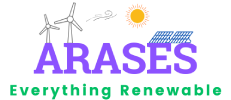As energy costs continue to rise, more homeowners and businesses are turning to solar energy as a smart investment. While sustainability is a major driver, the financial benefits of solar installation are equally compelling. From long-term savings to government incentives, here’s how going solar makes economic sense.
Significant Reduction in Electricity Bills
The most immediate and noticeable benefit of solar installation is the reduction in monthly electricity bills. By generating your own renewable energy, you rely less on the grid, and in some cases, you may even eliminate your electricity bill altogether. With net metering, excess energy produced during the day can be fed back into the grid, earning credits you can use later.
Attractive Return on Investment (ROI)
Solar panels are not just an expense—they’re an investment. Most systems pay for themselves in 5–7 years, after which you enjoy nearly free power for the remainder of the system’s 25–30-year lifespan. The ROI improves even further with rising utility rates, making solar a hedge against inflation.

Government Incentives and Tax Benefits
Many countries, including India, offer generous subsidies, tax credits, and rebates for solar power installations. The Indian government, through MNRE, provides incentives for both residential and commercial solar projects, which significantly reduces upfront costs.
Increased Property Value
Homes equipped with solar panels have higher property values and sell faster than those without. Buyers are willing to pay a premium for energy-efficient homes with lower utility costs. In markets where solar adoption is high, solar-ready homes are particularly attractive.
Low Maintenance and High Durability
Solar systems require minimal maintenance. Occasional cleaning and routine checks are enough to keep them operating efficiently. This means lower maintenance costs compared to other energy systems over time.
Protection Against Rising Energy Costs
Electricity rates tend to rise due to inflation, increased demand, and fuel costs. With solar, your energy cost is predictable and stable. By producing your own electricity, you’re protected from these price fluctuations.
Conclusion
Switching to solar energy isn’t just good for the planet—it’s a financially smart decision. From saving on energy bills and earning tax benefits to increasing property value and securing long-term ROI, solar installation offers a wide array of financial advantages.
Ready to make the switch? Contact ARASES today for customized solar solutions that deliver both environmental and economic value.




